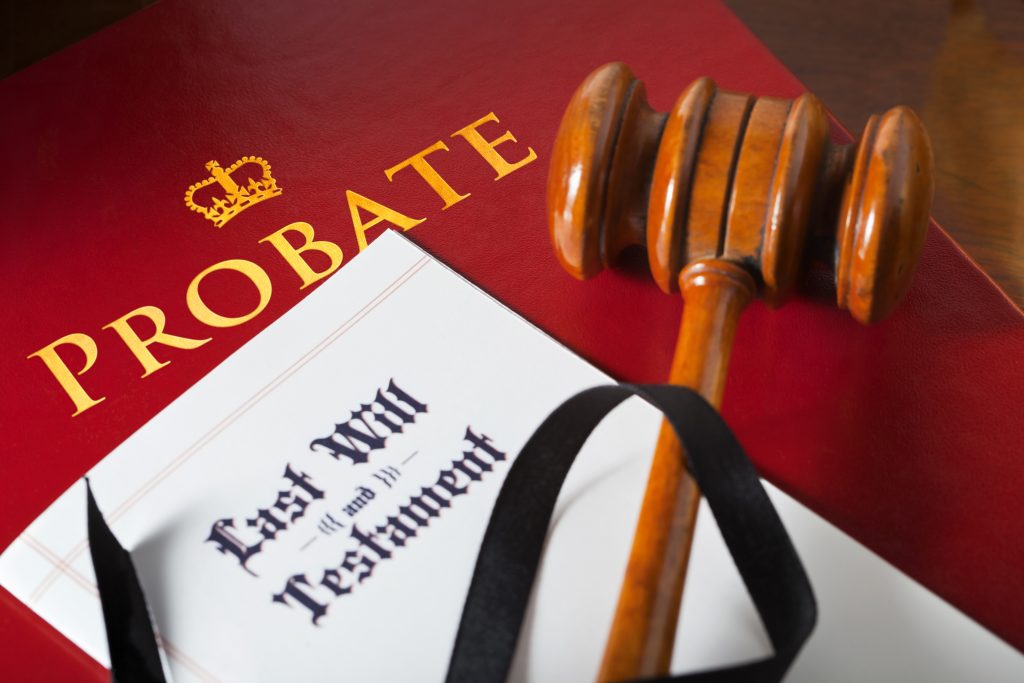
“There is nothing like the death of a moneyed member of the family to show persons as they really are, virtuous or conniving, generous or grasping.
“Many a family has been torn apart by a botched-up will.
“Each case is a drama in human relationships — and the lawyer, as counselor, draftsman, or advocate, is an important figure in the dramatis personae.”
— Jesse Dukeminier and Stanley M. Johanson
Introduction to 1972 edition of Family Wealth Transactions: Wills, Trusts, Future Interests, and Estate Planning
Although probate is not as complicated as some might make it out to be, it ideally takes a probate lawyer to work out the timing, content, and execution of a solid will and trust.
Let’s discuss exactly what a probate action is and how it can be executed to best serve the needs of an individual and their family.
What is probate? A breakdown of a will
Investopedia defines probate as “the term for a legal process in which a will is reviewed to determine whether it is valid and authentic.
“Probate also refers to the general administering of a deceased person’s will or the estate of a deceased person without a will.”
The process of probate involves identifying and assembling the assets of the deceased — generally described as that person’s “estate” — in order to pay any remaining liabilities and then distribute the leftover estate assets to the beneficiaries named in the will.
However, rather than money, probate cases can also be about children (ie. adoption and guardianship); adults who can’t represent themselves (ie. conservatorship); handling property estates of the deceased (ie. property transfer); and, planning for old age and death (trusts and power of attorney).
Critical elements of probate include:
- Probate proceedings are typically focused on the existence of a last will and testament
- Probate proceedings are not always required, but are typical if the deceased estate is of considerable value
Avoiding probate — including the costs and complexities that go along with it — is possible by having an authenticated will or by using investment vehicles that don’t require probate.
What is the probate process? 4 simple steps
There are four simple steps that comprise the probate process, in its most simplistic form.
Step #1: Filing
In filing to a probate court, the probate petition will ask that the executor be formally appointed to act on behalf of the estate.
All heirs and beneficiaries will receive notice that the petition has been filed (sometimes in the newspaper) — allowing them to object to the petition and challenge the will — as well as potential creditors that the estate still owes.
Step #2: Identifying Assets and Debts
The executor or personal representative of the estate must then identify and disclose all estate assets and provide a valuation — which can include real estate, bank accounts, vehicles, personal property, and intellectual property.
Creditors have a specific time frame in which to file a claim against the estate for debts owed.
Step #3: Payment of Debts
All of the estate’s debts will be paid out of the estate’s assets — which can include loans, mortgages, utility bills, credit card balances, final taxes, and funeral expenses.
If there’s not enough cash on hand to pay all creditors, the estate’s assets will be sold to settle those outstanding balances.
Step #4: Distribution of Assets
Once all creditors have been paid — and if there is a will — the remaining assets of the deceased’s estate will be distributed in accordance with the testator’s wishes, often requiring ownership transfers through deeds or titles.
A final accounting report will be provided to the court outlining all debts and assets and how property was distributed.
The entire probate process can take from a few months to a year or longer depending on the complexities of the will, the calendar of the court, or any number of circumstances.
Probate by the numbers: Stats from the ABA
The American Bar Association, a voluntary bar association of lawyers and law students, reveals a variety of statistics, figures, and data that help us better understand the probate process and probate laws.
- Almost 55% of people fail to create a will to direct the handling of their assets
- Over 90% of wills drafted in the ‘90s were by people 60+
- Minorities are less likely to create wills — with 68% of African Americans and 74% of Hispanics not drafting wills
- Americans spend roughly $2 billion on probate costs annually — with 75% of the total cost going to attorney’s fees
- About 41% of Americans have a living will in place — with about 38% having healthcare power of attorney, authorizing them to make medical decisions on behalf of someone else
And with respect to numbers of p[robates filed in example states — there were 122,498 cases filed in Florida in 2017 and about 85,000 filed in Ohio in 2014.
Work with an experienced will and probate lawyer today.
When you’re ready to make your last will and testament — or if you have probate issues that you need assistance with — the attorneys at Dishowitz Law have the experience and expertise to help you win in a court of law.
Source(s)
Probate, Investopedia
The Probate Process, American Bar Association
Self-Help Probate, The Superior Court of California
About Dishowitz Law
Dishowitz Law provides counsel to hundreds of individuals, families, and businesses involved in complex legal disputes, including estate planning, probate, estate disputes, general litigation, and landlord-tenant law. For more information, call (855) 236-3474, email bdishowitz@sflalaw.com, or visit https://dishowitzlaw.com/contact/.
